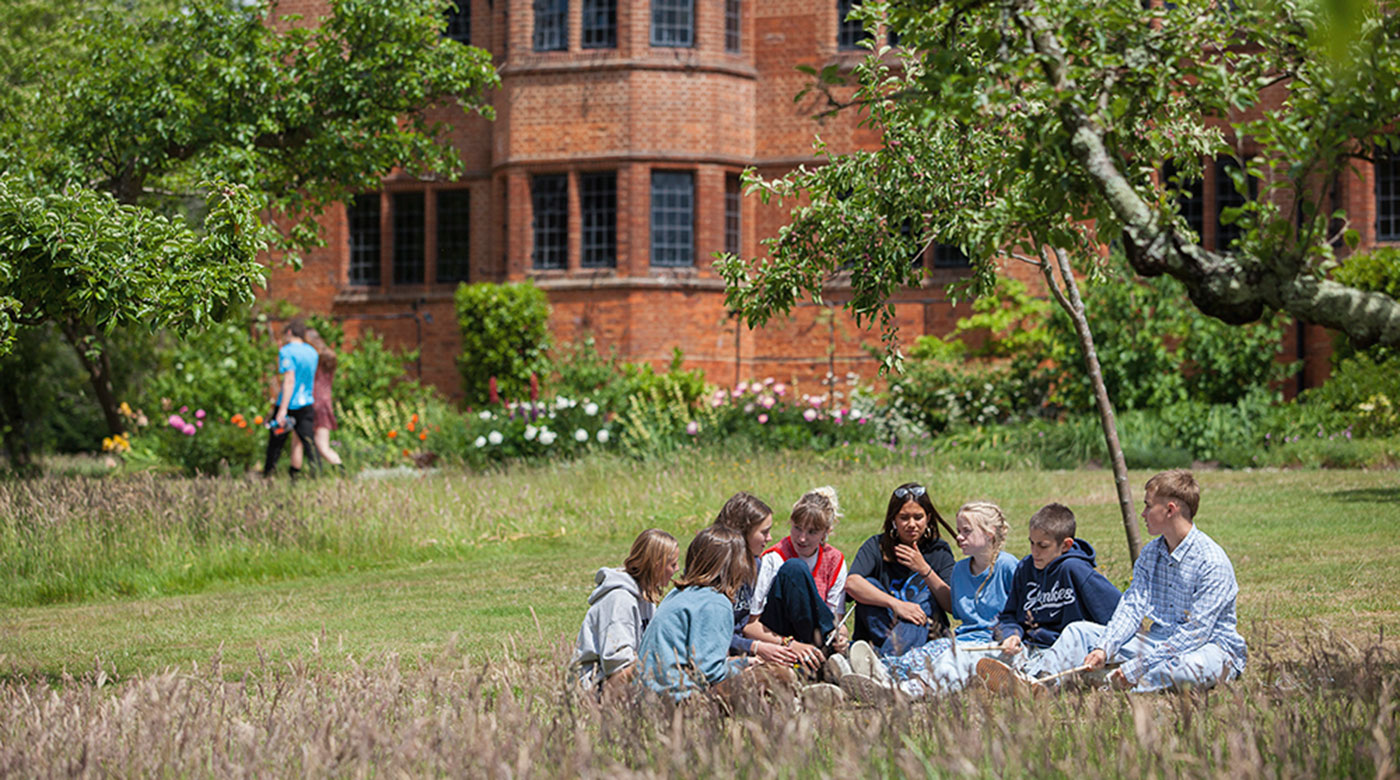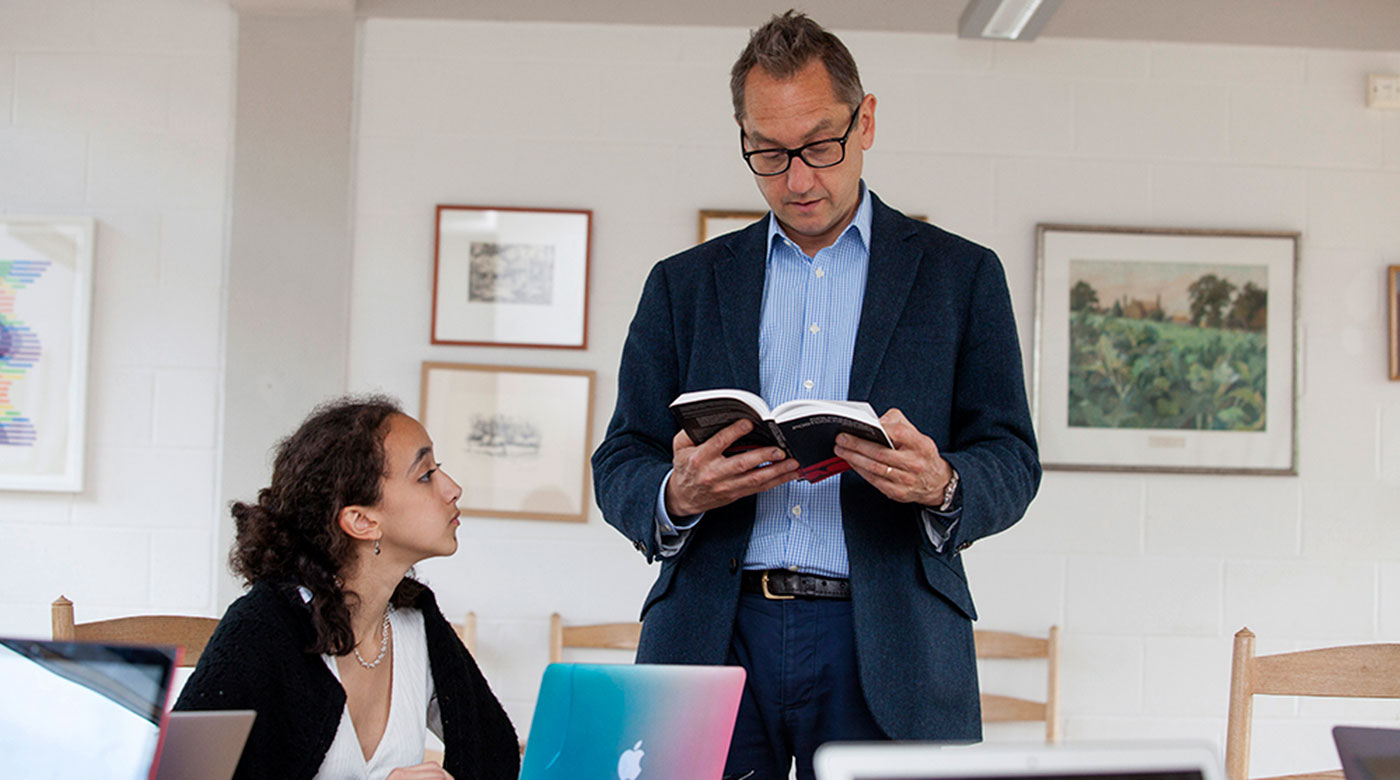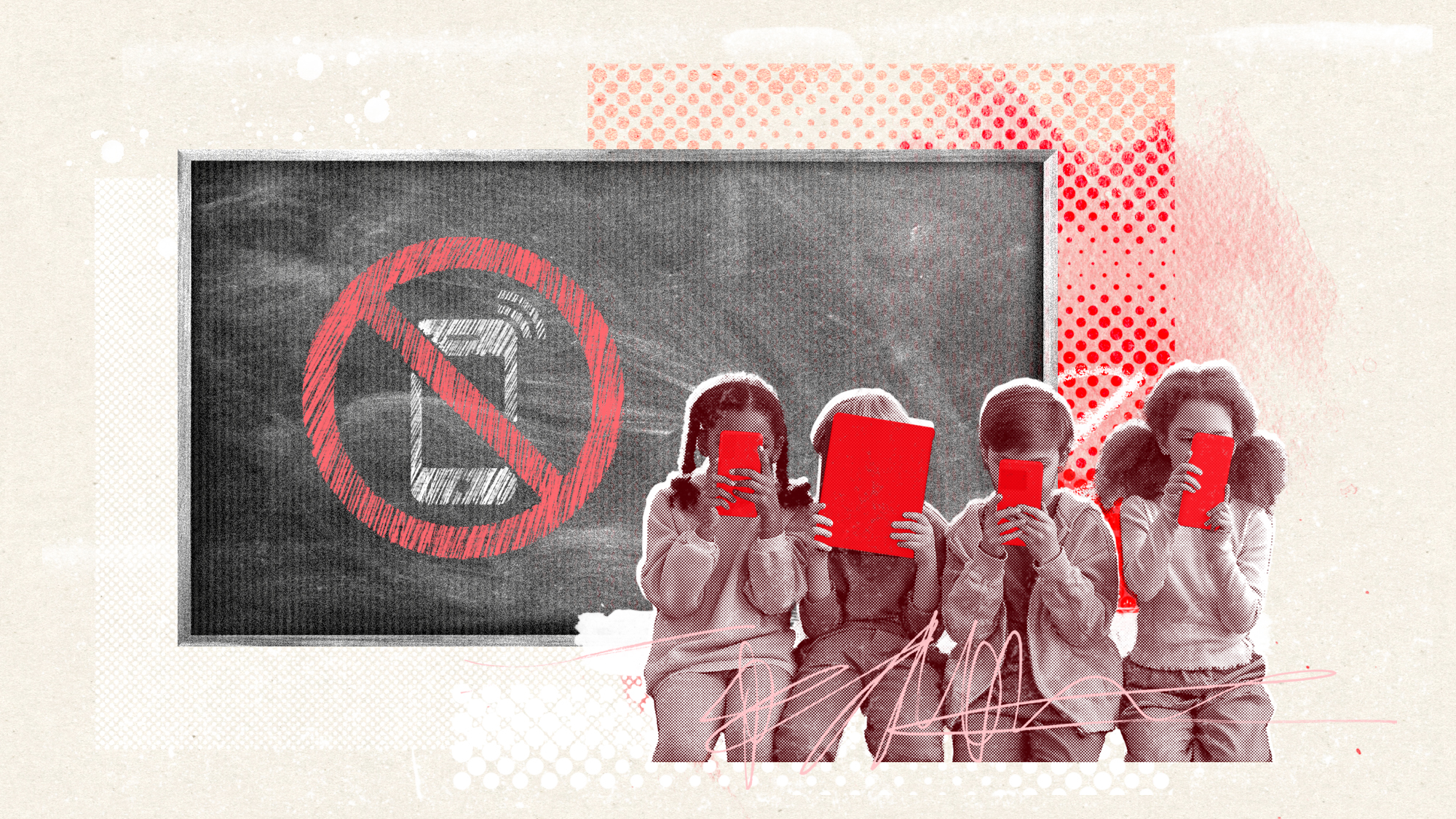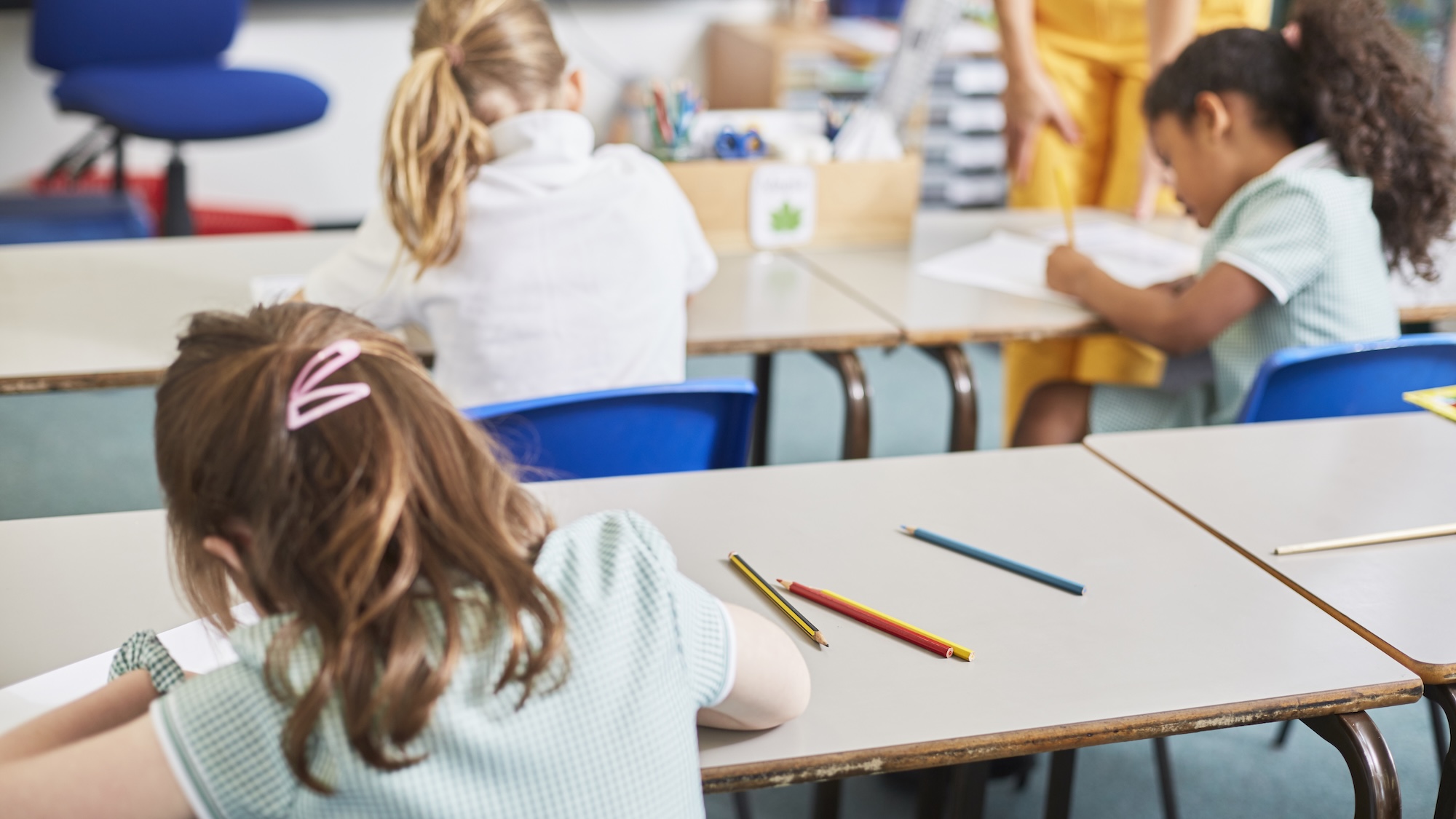The Week Schools Guide: Lessons from the pandemic
Real-time, face-to-face teaching and learning are irreplaceable, says Magnus Bashaarat, head of Bedales

A free daily email with the biggest news stories of the day – and the best features from TheWeek.com
You are now subscribed
Your newsletter sign-up was successful
One of the usual certainties about school life is that the milestones that mark progress through the academic year always happen at the same time: mock exams, A levels and GCSEs, all with a regularity that even nature cannot surpass. So the complex uncertainty caused by the pandemic that schools have had to deal with, whilst remaining open and delivering a teaching and learning experience to students, has been uniquely demanding.
Welcoming students back into the classroom at the end of last spring term and continuing the work to reconnect students and teachers with their learning experience reminded exhausted academic and support staff of their original vocation.
At the start of the pandemic and the first school closures back in March 2020, some independent schools worked out ways of monetising their curricula by delivering them online to a new paying customer base that was not attending the school. Artificial intelligence (AI) zealots were gleefully telling me how teachers would be amongst the first job roles soon to be replaced by a robot or digital device. What remote teaching and learning has made plain though is that real, in-person, three-dimensional contact between teacher and student is irreplaceable. Many of this summer’s school leavers are planning gap years, even though they know travel will be restricted, because the prospect of some undergraduate courses being delivered online in the new university year is so unpalatable.
The Week
Escape your echo chamber. Get the facts behind the news, plus analysis from multiple perspectives.

Sign up for The Week's Free Newsletters
From our morning news briefing to a weekly Good News Newsletter, get the best of The Week delivered directly to your inbox.
From our morning news briefing to a weekly Good News Newsletter, get the best of The Week delivered directly to your inbox.
Whether it was Microsoft Teams, Google Classroom or Zoom, every school that wanted to survive had to pivot overnight and “go virtual”. Schools that did it well had to learn innovative technology and capabilities speedily; those that did not, and sadly for their students there were many, were just setting work remotely in the morning (using the school’s existing online teaching platform) and taking it in at the end of the day to mark. For some, there was no real-time teaching and no interaction. Speaking as an English teacher, it’s true that live discursive dialogue about a text can be done online – but seeing the reaction and emotion of students in person and the joy when that sacred connection was restored once we opened the school again was incredible. For me one of the big “Covid keeps” will be shared real-time editing of written work using SharePoint. No longer the toing and froing of A4 paper covered in red ink. Now it is a guided drafting and grading process on a shared online space that cannot get eaten by the dog.

In the 2021 public exam cycle, teachers were put in the invidious position of having to carry out all the tasks that exam boards usually do: standardising, marking and moderating students’ work, whilst also delivering the curriculum. However, I am not a supporter of a simple return to the usual GCSE and A level format. This year has taught us that many students have fared better when the high-stakes terminal assessments have been replaced by evidence of achievement spread over a much longer time. At GCSE, learning vast amounts of curriculum content over two years and then writing it out again in a two-hour exam, at an arbitrary age, is an act of endurance and memory, not reflective of an educational system fit for preparing young people for the demands of the workplace in the 21st century. It really is the moment to rethink assessment and overhaul the outdated national curriculum.
At Bedales we have been offering our own Bedales Assessed Courses (BACs) alongside GCSEs for many years; they are recognised by UCAS and liked by universities and employers alike. Currently our students will sit four or five GCSEs (maths, English, sciences and a language) and then access BACs for the other half of the key stage 4 curriculum. Courses such as global awareness, philosophy, religion and ethics, outdoor work, English literature, history and drama all offer students an opportunity for independent research, collaboration, presentations and an exam, spread over two years of continuous assessment.
Bedales is a school that prides itself on its positive relationships and open discussions and we felt it was important to draw on this strength when addressing issues around sexual violence, harassment and discrimination as highlighted this year by the Everyone’s Invited website and the ensuing focus on a school’s culture. The Bedales pastoral team developed a four-stage programme to focus on issues raised by Everyone’s Invited. We used a model typically applied in conflict resolution situations, which helps to ensure that diverse groups feel heard and supported when sharing their views.
A free daily email with the biggest news stories of the day – and the best features from TheWeek.com
Phase 1 involved sharing and listening to different points of view. We initially ran some open mixed-age and mixed-gender sessions for students to talk about language and actions. We then posed the same questions in houses and in year groups. Phase 2 involved reflecting these ideas back to separate groups and encouraging students to consider their peers’ perspectives in a safe environment. In Phase 3 we identified the common goals and values that the groups hold, looking at what immediate changes can be made within our current practices. Finally, a working party was formed to consider the outcomes of this process and set an agenda for positive change.
After the challenges of the last 18 months we can now look forward to this academic year with renewed optimism, taking the positive parts from the annus horribilis to reset and renew. At Bedales we will continue to call for the structural changes needed to the UK’s education system so we can better prepare our young people for the world beyond school, enabling them to compete on the global stage with the resilience and self-knowledge needed in order to live happy, fulfilled lives.
-
 Labor secretary’s husband barred amid assault probe
Labor secretary’s husband barred amid assault probeSpeed Read Shawn DeRemer, the husband of Labor Secretary Lori Chavez-DeRemer, has been accused of sexual assault
-
 Trump touts pledges at 1st Board of Peace meeting
Trump touts pledges at 1st Board of Peace meetingSpeed Read At the inaugural meeting, the president announced nine countries have agreed to pledge a combined $7 billion for a Gaza relief package
-
 Britain’s ex-Prince Andrew arrested over Epstein ties
Britain’s ex-Prince Andrew arrested over Epstein tiesSpeed Read The younger brother of King Charles III has not yet been charged
-
 The pros and cons of banning cellphones in classrooms
The pros and cons of banning cellphones in classroomsPros and cons The devices could be major distractions
-
 School phone bans: Why they're spreading
School phone bans: Why they're spreadingFeature 17 states are imposing all-day phone bans in schools
-
 Schools: The return of a dreaded fitness test
Schools: The return of a dreaded fitness testFeature Donald Trump is bringing the Presidential Fitness Test back to classrooms nationwide
-
 Send reforms: government's battle over special educational needs
Send reforms: government's battle over special educational needsThe Explainer Current system in 'crisis' but parents fear overhaul will leave many young people behind
-
 Education: Can public schools be religious?
Education: Can public schools be religious?Feature A Supreme Court seems ready to rule in favor of religious charter schools in Oklahoma, which could reshape public education
-
 America's academic brain drain has begun
America's academic brain drain has begunIN THE SPOTLIGHT As the Trump administration targets universities and teachers, educators are eying greener academic pastures elsewhere — and other nations are starting to take notice
-
 Schools' Send crisis: how can it be fixed?
Schools' Send crisis: how can it be fixed?Today's Big Question Government urged to reform support for children with special educational needs and disabilities and save councils from bankruptcy
-
 Unschooling: the radical education trend raising eyebrows
Unschooling: the radical education trend raising eyebrowsUnder the radar Some parents are letting their children lead their education